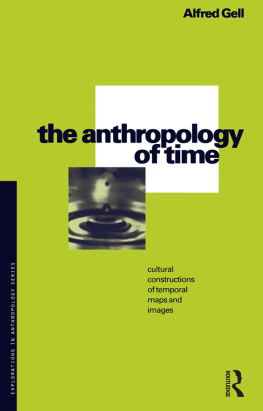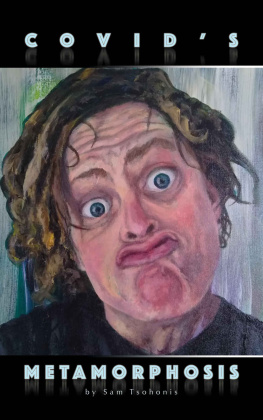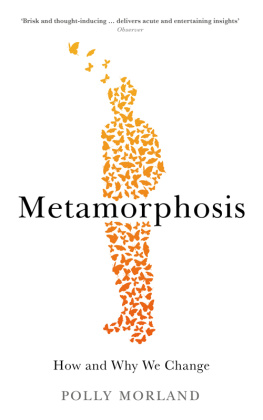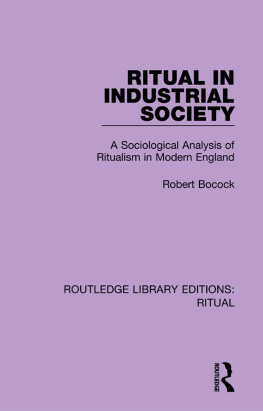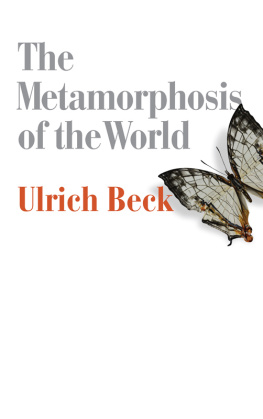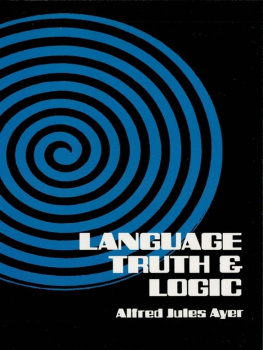METAMORPHOSIS OF THE CASS OW ARIES
LONDON SCHOOL OF ECONOMICS MONOGRAPHS ON SOCIAL ANTHROPOLOGY
Managing Editor: Peter Loizos
The Monographs on Social Anthropology were established in 1940 and aim to publish results of modern anthropological research of primary interest to specialists.
The continuation of the series was made possible by a grant in aid from the Wenner-Gren Foundation for Anthropological Research, and more recently by a further grant from the Governors of the London School of Economics and Political Science. Income from sales is returned to a revolving fund to assist further publications.
The Monographs are under the direction of an Editorial Board associated with the Department of Anthropology of, the London School of Economics and Political Science.
First published 1975 by The Athlone Press
Published 2020 by Routledge
2 Park Square, Milton Park, Abingdon, Oxon OX14 4RN
605 Third Avenue, New York, NY 10017
Routledge is an imprint of the Taylor & Francis Group, an informa business
Alfred Gell 1975
All rights reserved. No part of this book may be reprinted or reproduced or utilised in any form or by any electronic, mechanical, or other means, now known or hereafter invented, including photocopying and recording, or in any information storage or retrieval system, without permission in writing from the publishers.
Notice:
Product or corporate names may be trademarks or registered trademarks, and are used only for identification and explanation without intent to infringe.
ISBN 13: 978-0-4851-9551-4 (hbk)
ACKNOWLEDGEMENTS
This book is a modified version of a Ph.D. thesis written while I was attached to the London School of Economics, first as a graduate student and later as a lecturer. It was revised while I was a lecturer at the University of Sussex. I am grateful to both of these institutions for helping me in conducting my research.
My intellectual and practical debt is greatest to Anthony Forge who supervised me before, during, and after my fieldwork in New Guinea. I benefited greatly from the incisive criticisms he made of the various drafts of my thesis. Besides indispensable practical assistance and advice in setting up my research, I also owe him and Jane Forge a great debt of hospitality, impossible to reciprocate.
I would also like to thank my other teachers, particularly Andrew Strathern, my supervisor at Cambridge, who first introduced me to New Guinea as a possible research area. Professor G. B. Milner has given me much valuable advice and assistance on matters appertaining to linguistics, for which I take this opportunity to thank him, also.
Among my fellow-students at the L.S.E. I would particularly like to acknowledge my debts, for stimulating comments and conversations, to Jerry Poole, Tristan Platt, Gilbert Lewis and Alice Morton.
Here also I must acknowledge the generous help I received while in New Guinea. Ralph Bulmer made my entry and exit from the field immeasurably more comfortable through his generous hospitality and advice. I owe an especial debt to Mr Pryke, the A.D.O. Imonda, and his wife, for absolutely invaluable help in the field. Not only did I receive from him and from the other administrative personnel with whom I came into contact all the co-operation and assistance I could possibly have required, but from him and from the other officers at Imonda I also received much unstinted hospitality, for which I am deeply grateful. I would also like to record here that it was not I alone who held Mr Pryke in particular esteem, but also the local people, to whose problems and anxieties he devoted himself with untmng sympathy. Here I must also take the opportunity of thanking the Catholic missionaries at Imonda for their frequent hospitality.
The anthropologists debt to his informants is an imponderable one: and not one that is in any way materially offset by the mere inscription of names in a book. None the less, inscribed they shall be. As for the possessors of these names, it is at once their supreme good fortune, and their greatest misfortune, that in all probability they would regard the matter of their inscription with considerable indifference. Let me salute them, then, individually and collectively, as courteous men, charming and unaffected, inheritors of a richly-resonant, beautiful and doomed cultural tradition.
DONATUS , POGWA , JULUS , POM , AUYAI , MADA , AMASU , AIWE , WIYE , WAPI , FAI , FI , YIP , KIWE , WEB , HODAI , SOWAI , MAGWI , LUCE , ZENO .
Tdum tda maivem!
This research was supported by the UK Social Science Research Council whose generous funding made my fieldwork possible.
Further financial assistance was provided during the writing-up period by the Royal Anthropological Institute. I am also grateful for material assistance afforded by the Central Research Fund of the University of London and the L. S.E. Anthropology Department.
Finally I thank my parents who have helped me financially and in innumerable other ways at all stages of my university career, allowing me to pursue a rather peculiar but in the end immensely rewarding specialization without undue worries. I am conscious of having been unusually lucky in this regard.
A.G.
1
The Umeda Setting
This book is divided into three main parts: firstly an account of the social structure of Umeda village (). The present chapter is by way of an introduction: I shall not broach any of my major themes here, leaving them to the later chapters, since my present purpose is to place the Umedas on the map, giving some idea of their physical surroundings; and also to say a little about their material culture and economic life. But first, a word about the contact situation.
The fieldwork on which this thesis is based was carried out between February 1969 and July 1970 in Umeda village, which is one of four villages which, together, make up the Waina-Sowanda census area in the West Sepik District of New Guinea. My investigations did not extend beyond the limits of the Waina-Sowanda census area, though some of the features of social structure and ritual which characterize the four villages in the Waina-Sowanda area have been found elsewhere in the Sepik district, and also occur in accounts of groups to the west, across the Irian border. My conclusions, therefore, apply primarily to the Waina-Sowanda area (i.e. to a population of no more than c. 960 individuals). It is perhaps regrettable that it is only possible to speak in terms of such a tiny aggregate of people, but that, indeed, is very much a feature of work in the less ecologically favoured regions of New Guinea. Population, in the Waina-Sowanda area and the surrounding region as well, is extremely sparse; though figures for population per square mile would be misleading, since in certain pockets of country quite dense populations are found, and a relatively intensive exploitation of the environment. This is particularly true of the W asengla valley, to the north of the W aina-Sowanda area.
The Waina-Sowanda area is shown on . The four villages, Umeda, Punda, Sowanda and Waina-Wyalla are administered from Imonda patrol post, six hours walk away (there were no motorable roads of any kind in Imonda sub-district in 196970). Five councillors were elected by villagers in the area. They represent their villages (Waina-Wyalla being counted as two villages by the administration) on the Walsa Local Government Council. Other councillors were elected by the Imonda and W alsa villages, and the council met every six weeks at the Imonda patrol post.



